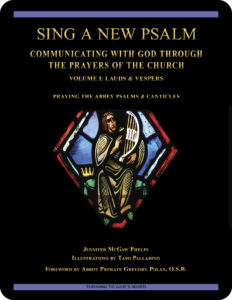 Sing a New Psalm:
Sing a New Psalm:
Communicating with God Through
the Prayers of the Church
Volume I: Lauds & Vespers
Lesson 8 Seeing in God’s Light
Psalm 36, Psalm 47, and Psalm 48
Wednesday Lauds (Week I)
Revised Standard Version Catholic Edition (RSVCE)*
New American Bible Revised Edition (NABRE)*
Catechism of the Catholic Church
ex libris (in our library)
next lesson: An Overflowing Heart
This material coordinates with Lesson 8 on pages 34–37 in Sing a New Psalm: Communicating with God Through the Prayers of the Church—Volume I: Lauds & Vespers. Our Catholic Bible study is based on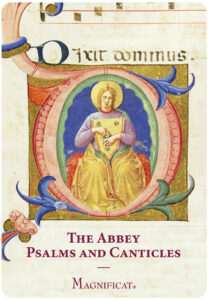 The Abbey Psalms and Canticles, an English translation of the Psalms prepared by the monks at Conception Abbey in 2010 and first published as The Revised Grail Psalms. The Abbey Psalms and Canticles is a revision of that work, finished in 2020 and published by the United States Conference of Catholic Bishops (USCCB). Wording and numbering of some Psalms and verses in other translations may differ. This new translation of the Psalms in the process of being added to all English-language Liturgy of the Hours books used in the United States. The USCCB also plans a liturgical Bible based on the NABRE translation.
The Abbey Psalms and Canticles, an English translation of the Psalms prepared by the monks at Conception Abbey in 2010 and first published as The Revised Grail Psalms. The Abbey Psalms and Canticles is a revision of that work, finished in 2020 and published by the United States Conference of Catholic Bishops (USCCB). Wording and numbering of some Psalms and verses in other translations may differ. This new translation of the Psalms in the process of being added to all English-language Liturgy of the Hours books used in the United States. The USCCB also plans a liturgical Bible based on the NABRE translation.
“Unlike other prayers in sacred Scripture, the prayers contained in the Psalms are not inserted into a narrative story that specifies their meaning and function. Instead, the Psalms are given to the believer precisely as a text of prayer. Since they are the Word of God, the believer who prays the Psalms speaks to God using the very words that God himself has given to us. Thus, in praying the Psalms we learn to pray. The Psalms are a school of prayer.”—Pope Benedict XVI
welcome to our in-depth study of the Psalms
We invite groups and individuals to check out the sample first lesson from this 28- lesson Turning to
lesson Turning to  God’s Word Catholic Bible study. Our online study pages include additional questions, commentary, and prayers based on the Psalm texts. Sing a New Psalm: Communicating with God Through the Prayers of the Church—Volume I: Lauds & Vespers has been granted an imprimatur. A digital version of this study can be purchased from our website shop. Volume II: Vigils, Day Prayer & Compline is scheduled for publication in 2025. If you have a Bible-study question or comment, click on one of the “ask us your question” or “what do you think” buttons on any online study page.
God’s Word Catholic Bible study. Our online study pages include additional questions, commentary, and prayers based on the Psalm texts. Sing a New Psalm: Communicating with God Through the Prayers of the Church—Volume I: Lauds & Vespers has been granted an imprimatur. A digital version of this study can be purchased from our website shop. Volume II: Vigils, Day Prayer & Compline is scheduled for publication in 2025. If you have a Bible-study question or comment, click on one of the “ask us your question” or “what do you think” buttons on any online study page.
open with prayer
It’s always wise to begin any Bible study with prayer, whether reading the Scriptures alone or meeting with others in a discussion study group. You can pray using your own words, pray one of the Psalms in this lesson, or use one of the opening prayers on our website. We especially like the following:
Lord Jesus, you promised to send your Holy Spirit
to teach us all things.
As we read and study your word today,
allow it to touch our hearts and change our lives. Amen.
the Psalmist is spiritually enlightened
The illustration for this lesson was created by Turning to God’s Word co-founder Tami Palladino, and it emphasizes a number of important biblical concepts about Jesus. That Jesus is the light of the world, a key theme from the Gospel According to John, seems like a no-brainer. A similar idea suggested in 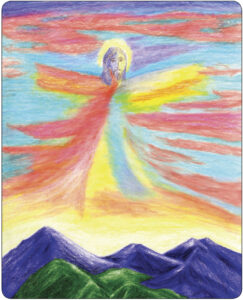 Psalm 19:1-6 in Lesson 4 To My Words Give Ear was the comparison of the Son of God to the sun that rises in the East each morning like a bridegroom coming from his tent. Psalm 36:7 mentions being in the shadow of God’s wings. In Tami’s illustration, Jesus’ outstretched arms seem to overshadow the landscape. Perhaps less obvious is the subtle link to Jesus’ promise in the Gospel According to Matthew 24:30 and the Gospel According to Mark 13:26 that the Son of Man will again appear in power and glory coming on the clouds. What other biblical connections can you think of that might apply? Click on Tami’s illustration (right) to enlarge it. Her original illustration is on page 35 in Sing a New Psalm: Communicating with God Through the Prayers of the Church—Volume I: Lauds & Vespers.
Psalm 19:1-6 in Lesson 4 To My Words Give Ear was the comparison of the Son of God to the sun that rises in the East each morning like a bridegroom coming from his tent. Psalm 36:7 mentions being in the shadow of God’s wings. In Tami’s illustration, Jesus’ outstretched arms seem to overshadow the landscape. Perhaps less obvious is the subtle link to Jesus’ promise in the Gospel According to Matthew 24:30 and the Gospel According to Mark 13:26 that the Son of Man will again appear in power and glory coming on the clouds. What other biblical connections can you think of that might apply? Click on Tami’s illustration (right) to enlarge it. Her original illustration is on page 35 in Sing a New Psalm: Communicating with God Through the Prayers of the Church—Volume I: Lauds & Vespers.
 kingdom of heaven—you could look it up in our archives
kingdom of heaven—you could look it up in our archives
Several royal themes appear in the Psalms for Week I Wednesday Lauds. To learn about the universal nature of the “kingdom of heaven” and how it relates to the king who rules over it, read Lost in Translation, an online column in which Turning to God’s Word author Matthew Phelps helps readers connect with ideas expressed in the original languages of the Scriptures. New Lost in Translation entries are posted on Mondays, and past entries are archived on our website. Contact us if you’d like to receive Lost in Translation by email every week.
Q&A—important information about God’s kingdom
The kingdom of God is not the easiest concept to wrap our heads around, and a participant in one of our recent study groups in California has asked for help understanding Question 5. We’re including that question here for readers without access to a print or digital copy of Sing a New Psalm: Communicating with God Through the Prayers of the Church—Volume I: Lauds & Vespers.
Question 5 According to Psalm 47:1–5, does God’s kingdom have any geographic limitations? In the Gospel According to Luke 13:18–30, how do Jesus’ descriptions of the kingdom differ? According to Jesus, what is the prerequisite for entering the kingdom? What Old Testament figures will be found there? What does Jesus suggest that they will be doing?
 Q: I’m having trouble with the questions about the passage from the Gospel According to Luke. I don’t see Jesus giving a prerequisite. I also don’t see any mention of what Abraham, Isaac, and Jacob are doing. Can you explain what you’re looking for with these questions?
Q: I’m having trouble with the questions about the passage from the Gospel According to Luke. I don’t see Jesus giving a prerequisite. I also don’t see any mention of what Abraham, Isaac, and Jacob are doing. Can you explain what you’re looking for with these questions?
A: This provides a great opportunity to mention again that although the Psalms were written before the time of Jesus, when we read the Psalms we want to consider not only what a particular Psalm may have meant to the Psalmist, but also about what it meant when Jesus prayed it and what it means to us as Christians today. That’s behind thinking about the difference between the kingdom described in Psalm 47 and the kingdom of God described by Jesus in the Gospels. Sometimes it’s good to explain how we’ve arrived at some of our conclusions. You may think of another way to approach Question 5, and as long as your interpretation doesn’t contradict anything else in the Scriptures or fly in the face of Church teaching, you’re fine. Read the following brief commentaries for more information about how to think about the kingdom of God.
showing our math—the kingdom of God has some limitations
In the Gospel According to Luke 13:18–30, Jesus goes to some effort to tell what the kingdom of God is like—a mustard seed or leaven, two things that start very small and grow and grow. From this we know that we can think about the kingdom itself as starting small and growing. Jesus goes on to talk about the door being closed. This means that there will be a time when the size of the kingdom will max out—like the size of a mature mustard plant or dough that’s raised. This is especially interesting in light of Psalm 47, which specifically states that God is king over all the earth. God’s rule is unlimited, but it seems that something can prevent some people from entering God’s kingdom. If we know what keeps people out, then we also should be able to figure out the prerequisite for getting in.
some harsh words from Jesus
It should be obvious that Jesus is talking about himself as the householder or Lord of the kingdom of God. The people who aren’t included among the saved attempt to get in the door by telling the householder that they ate and drank in his presence and heard him teach. Jesus is the Lord of the kingdom of God, and he says that once the door is closed, that’s it—game over. He also says it won’t do any good to tell him that you ate and drank in his presence or heard him teach. This isn’t a feel-good Gospel passage. The most obvious place that Catholics eat and drink in Jesus’ presence and hear Jesus’ teachings is the Mass. In present-day terms, Jesus essentially is saying to those who’ve been left out of the kingdom: “So you regularly went to Mass—so what?” This should give all Catholics pause.
read the Catechism—our goal is to become mature Christians
Paragraph 2042 in the Catechism of the Catholic Church lists attending Mass as the first precept of the Church. It’s significant that the precepts are listed under “Life in Christ,” the lengthy third section on Christian morality. In introducing these precepts of the Church, paragraph 2041 in the Catechism of the Catholic Church describes them as the minimum effort required of the faithful. While the precepts absolutely are necessary in developing a spirit of prayer and a life devoted to moral effort, paragraph 2045 goes on to explain that Christians have a greater responsibility than simply attending Mass each week. We have a responsibility to grow in our faith. Scripture affirms the same thing when the Letter to James 1:22 advises Christians to “be doers of the word, and not hearers only, deceiving yourselves.”
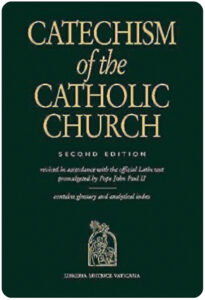 2041 The precepts of the Church are set in the context of a moral life bound to and nourished by liturgical life. The obligatory character of these positive laws decreed by the pastoral authorities is meant to guarantee to the faithful the very necessary minimum in the spirit of prayer and moral effort, in the growth in love of God and neighbor:
2041 The precepts of the Church are set in the context of a moral life bound to and nourished by liturgical life. The obligatory character of these positive laws decreed by the pastoral authorities is meant to guarantee to the faithful the very necessary minimum in the spirit of prayer and moral effort, in the growth in love of God and neighbor:
2042 The first precept (“You shall attend Mass on Sundays and on holy days of obligation and rest from servile labor”) requires the faithful to sanctify the day commemorating the Resurrection of the Lord as well as the principal liturgical feasts honoring the mysteries of the Lord, the Blessed Virgin Mary, and the saints; in the first place, by participating in the Eucharistic celebration, in which the Christian community is gathered, and by resting from those works and activities which could impede such a sanctification of these days.
The second precept (“You shall confess your sins at least once a year”) ensures preparation for the Eucharist by the reception of the sacrament of Reconciliation, which continues Baptism’s work of conversion and forgiveness.
The third precept (“You shall receive the sacrament of the Eucharist at least during the Easter season”) guarantees as a minimum the Lord’s Body and Blood in connection with  the Paschal feasts, the origin and center of the Christian liturgy.
the Paschal feasts, the origin and center of the Christian liturgy.
2045 Because they are members of the Body whose Head is Christ, Christians contribute to building up the Church by the constancy of their convictions and their moral lives. The Church increases, grows, and develops through the holiness of her faithful, until “we all attain to the unity of the faith and of the knowledge of the Son of God, to mature manhood, to the measure of the stature of the fullness of Christ.”
WHAT DO YOU THINK that Jesus means?
It’s always a good idea to consider how Jesus’ words might apply to us in our present age.
 ? In the Gospel According to Luke 13:18–30, Jesus twice says: “I don’t know where you come from.” What does this suggest about the people who are going to make it into heaven before the narrow door closes?
? In the Gospel According to Luke 13:18–30, Jesus twice says: “I don’t know where you come from.” What does this suggest about the people who are going to make it into heaven before the narrow door closes?
? In the Bible knowing where someone comes from is knowing the person. The prerequisite for getting into the kingdom is that Jesus needs to know us. What can you point to as evidence that your relationship with Jesus consists of more than merely eating and drinking in his presence or hearing his teaching?
? What are you doing to ensure that Jesus knows who you are and where you come from?
? Where are you coming from spiritually when you attend Mass each week?
we don’t know where we’ll be seated
The key to thinking about the last part of Question 5 is the wording. It asks what Jesus suggests the Old Testament figures will be doing in the kingdom. The words “suggest” or “imply” always are clues that the answer isn’t going to be directly spelled out. We have to read the biblical text and decide for ourselves what we think. It’s a fair guess that Abraham, Isaac, and Jacob are going be doing the same thing in the kingdom that those who come from the East and West and North and South will be doing—eating at table. This is in keeping with other Gospel descriptions of the kingdom of heaven as a banquet or feast. That’s interesting in light of the fact that eating and drinking in Jesus’ presence on earth isn’t enough to guarantee anyone a seat at the table in the kingdom of God. Jesus also warns that even if we make it in the narrow door, we shouldn’t have any assumptions about the seating arrangement.
how can we ensure that Jesus will recognize us?
Psalm 47 is clear about the Israelites being chosen by God. In the passage from the Gospel According to Luke, Jesus suggests that descendants of the patriarchs aren’t automatically guaranteed a place in the kingdom based on lineage. Jesus says that people will come from all over and get in—but only if they have a relationship with Jesus. The prerequisite for getting in isn’t lineage or eating and drinking in Jesus’ presence or hearing him teach. We each have to decide what will allow Jesus to recognize us.
more biblical information about how to get acquainted with Jesus
A related passage is the Gospel According to Matthew 25:31–46, the familiar parable about the sheep and the goats. Here Jesus explains in more detail what we need to be doing if we want in the kingdom. In that parable, we can see that eating and drinking in Jesus’ presence doesn’t count for anything, but giving food and drink to others does. This parable spells out with more clarity that Jesus is present in other people—which seems to suggest that Christians are intended to be the seed or the yeast in the world. By demonstrating our love of others, we act as catalysts for the kingdom—the same way that Jesus has demonstrated his love for us. When we see another person living in faithful witness and demonstrating love of God and love of neighbor, that can and should lead us to want to do the same.
 the popes inspire us—thoughts on the reign of God
the popes inspire us—thoughts on the reign of God
“Christ the King” on page 36 in Sing a New Psalm: Communicating with God Through the Prayers of the Church—Volume I: Lauds & Vespers was inspired by Psalm 47. In this teaching from a general audience, Pope St. John Paul II shares a description from an anonymous 8th-century author explaining the way in which the kingship of God is realized on earth. Learn more about how David’s rule over the descendants of Israel serves as a precursor for Jesus in  the 16 lessons about David that make up the bulk of the Turning to God’s Word Catholic Bible study The United Kingdom of Israel: Saul, David & Solomon Foreshadow Christ the King.
the 16 lessons about David that make up the bulk of the Turning to God’s Word Catholic Bible study The United Kingdom of Israel: Saul, David & Solomon Foreshadow Christ the King.
immediate consequences
In Psalm 36:12, the Psalmist observes that the evildoers have fallen and are unable to rise. At first he appears to be gloating over the fate of his enemies, but it seems more likely that the Psalmist has included this comment as a reminder that negative consequences always await those who embrace wickedness. Although some people seem to gloat at the thought that those who didn’t work hard in this lifetime will be unable to enjoy rest in the next, there’s more to it. Wicked behavior disturbs our rest here and now. Psalm 36 is suggesting that people who engage in wicked behavior will be unable to rise. At first glance it seems the Psalmist is writing about the present, but his words also suggest that wickedness has serious long-term consequences. It’s one thing not to be able to physically rise and move about every day. It’s something entirely different not to be able to rise to eternal life.
t he best Catholic commentary about Scripture
he best Catholic commentary about Scripture
To find out more about how Church teaching is supported by passages in Sing a New Psalm: Communicating with God Through the Prayers of the Church—Volume I: Lauds & Vespers, check out the Index of Citations in the Catechism of the Catholic Church. Links (Revised Standard Version Catholic Edition [RSVCE*]) to the primary Scripture passages in the lesson and relevant paragraphs in the Catechism are provided here. Not every passage in the biblical text for this study is referenced in a Catechism paragraph, however, including Psalm 36, Psalm 47, and Psalm 48 in this lesson.
don’t forget about our indexes & extra online material

 If you’re trying to locate information about a specific Scripture passage, you can look it up in the index at the back of the study book or sample lesson. If you want to find a particular commentary, you can look up its title in the topics index. To learn more about another book of the Bible for which there’s a Turning to God’s Word study, visit the online study directories to read the commentaries and watch any accompanying videos. Finally, if you have a question or would like to make a comment about any of our studies, you can use one of the “ask us your question” or “what do you think” buttons to email our authors.
If you’re trying to locate information about a specific Scripture passage, you can look it up in the index at the back of the study book or sample lesson. If you want to find a particular commentary, you can look up its title in the topics index. To learn more about another book of the Bible for which there’s a Turning to God’s Word study, visit the online study directories to read the commentaries and watch any accompanying videos. Finally, if you have a question or would like to make a comment about any of our studies, you can use one of the “ask us your question” or “what do you think” buttons to email our authors.
ex libris—Church documents & books about religious topics
Link to magisterial documents referred to in our Bible studies at ex libris—magisterial documents.  This listing includes significant recent encyclicals as well as a number of historical Church documents. Recommended books related to Scripture study can be found at ex libris—main bookshelf.
This listing includes significant recent encyclicals as well as a number of historical Church documents. Recommended books related to Scripture study can be found at ex libris—main bookshelf.
wondering how to pronounce some of these words?
The following links are to readings from the New International Version (NIV) Bible. To listen, open one of the links and click on the audio icon above the printed text. Although not taken from the translations used in our study materials, the NIV readings provide an audio guide to pronunciation of words in this lesson’s primary biblical texts. A close online version of the translation of the Bible used in Catholic liturgy in the United States as well as an audio guide for daily Mass readings for the current month can be found on the website of the United States Conference of Catholic Bishops (USCCB).
Psalm 36 (NIV)
Psalm 47 (NIV)
Psalm 48 (NIV)
 close with a Psalms-based prayer for Wednesday Lauds (Week I)
close with a Psalms-based prayer for Wednesday Lauds (Week I)
Many of our Catholic study groups like to conclude their discussions with a prayer based on the scriptural focus of their lesson. If you’re uncomfortable composing your own Bible-based prayers, you can follow our four easy steps. If you prefer, you can pray any of the Psalms in this lesson, or you can use the following short prayer.
O God, your mercy is unlimited;
from heaven you shine your light on all men and women.
Grant that we may be counted among those worthy
of entering your kingdom.
Show us the things that we must do in this life
in order that your Son, Jesus Christ, will be able to recognize us in the next.
We ask this in his name. Amen.
Lesson 9 An Overflowing Heart, Wednesday Vespers (Week I)—Psalm 32, Psalm 45, and Psalm 62
Lesson 7 One Thing I Ask of the LORD, Tuesday Vespers (Week I)—Psalm 27 and Psalm 33
you also may like our study of the Gospel According to John
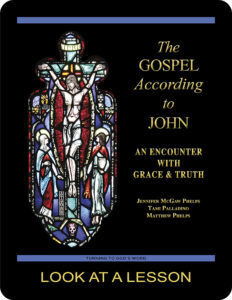 The Gospel According to John: An Encounter with Grace & Truth, a 25-lesson Catholic Bible study with an imprimatur, examines the Fourth Gospel’s view of Jesus Christ as the Son of God, with special emphasis on the institution of the sacraments of the Church as the means by which Christians are purified and made holy. This recently revised study includes maps and additional commentary, and takes a closer look at the way in which Jesus relates to individual men and women. Click on the book’s cover to view a sample lesson.
The Gospel According to John: An Encounter with Grace & Truth, a 25-lesson Catholic Bible study with an imprimatur, examines the Fourth Gospel’s view of Jesus Christ as the Son of God, with special emphasis on the institution of the sacraments of the Church as the means by which Christians are purified and made holy. This recently revised study includes maps and additional commentary, and takes a closer look at the way in which Jesus relates to individual men and women. Click on the book’s cover to view a sample lesson.
start a Turning to God’s Word Bible study
Thank you for your interest in Sing a New Psalm: Communicating with God Through the Prayers of the Church—Volume I: Lauds & Vespers. 
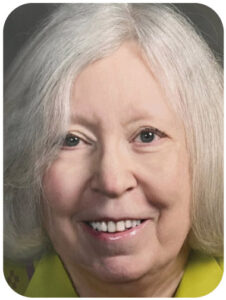 More information about beginning a Turning to God’s Word Bible study can be found on this website at start a Bible study, and Tami, Matthew, and I are available to answer questions or discuss concerns. Contact us to start this or one of our other studies or to have your schedule listed with other TtGW study groups on our website. —Jennifer
More information about beginning a Turning to God’s Word Bible study can be found on this website at start a Bible study, and Tami, Matthew, and I are available to answer questions or discuss concerns. Contact us to start this or one of our other studies or to have your schedule listed with other TtGW study groups on our website. —Jennifer
*There are seven deuterocanonical books in the Old Testament—the Books of Tobit, Judith, Wisdom, Sirach, Baruch, and First and Second Maccabees, as well as some passages in the Books of Esther and Daniel. Protestants usually refer to these works as “apocryphal,” a word that means “outside the (Protestant) canon” because they’re excluded from most Protestant Bibles. The word “deuterocanonical” means “second canon”; Catholics use that word to refer to any section of the Catholic Old Testament for which there are no extant, or existing, Hebrew manuscripts. All of the deuterocanonical books appear in the Septuagint, the earliest remaining versions of which date to the 1st century B.C. This Greek translation of the Old Testament was in common use by Jews at the time of Jesus—but the same books aren’t found in existing Hebrew manuscripts, which aren’t as old as the oldest version of the Septuagint. Learn more by reading How Do Catholic & Protestant Bibles Differ?
Turning to God’s Word printed Bible studies use the 2006 Revised Standard Version Second Catholic Edition (RSV2CE) translation for all Scripture references except the Psalms, which are taken from The Abbey Psalms and Canticles, prepared by the monks of Conception Abbey and published in 2020 by the United States Conference of Catholic Bishops (USCCB). All Scripture links for the online study pages for Sing a New Psalm: Communicating with God Through the Prayers of the Church—Volume I: Lauds & Vespers are to the 1966 Revised Standard Version Catholic Edition (RSVCE) translation. The New International Version (NIV) audio recordings follow the same chapter and verse numbering as the RSV Catholic translations, but the NIV doesn’t include the deuterocanonical passages.
The 1966 RSVCE uses archaic pronouns and verb forms such as “thee,” “thou,” “didst” in the Psalms and in direct quotations attributed to God. The 2006 RSV2CE replaces those with more accessible English. The few significant translation changes in the RSV2CE include rendering almah as “virgin” in the Book of Isaiah 7:14 and restoring the term “begotten” in the Gospel According to John 3:16.
The Psalms in this Bible study reflect numbering used in The Abbey Psalms and Canticles; Psalms numbering may vary in other translations. Numbering also may vary for a few other passages in this Bible study. Turning to God’s Word studies follow the numbering in the Revised Standard Version Catholic translations (RSVCE and RSV2CE). Discrepancies in the New American Bible Revised Edition (NABRE) are noted in the Index of Scripture Citations in the study book and the online sample.
 The companion to this Catholic Bible study from Turning to God’s Word, Sing a New Psalm: Communicating with God Through the Prayers of the Church—Volume II: Vigils, Day Prayer & Compline, will cover Psalms not included in Volume I: Lauds & Vespers. Volume II: Vigils, Day Prayer & Compline is scheduled for publication in 2025.
The companion to this Catholic Bible study from Turning to God’s Word, Sing a New Psalm: Communicating with God Through the Prayers of the Church—Volume II: Vigils, Day Prayer & Compline, will cover Psalms not included in Volume I: Lauds & Vespers. Volume II: Vigils, Day Prayer & Compline is scheduled for publication in 2025.
